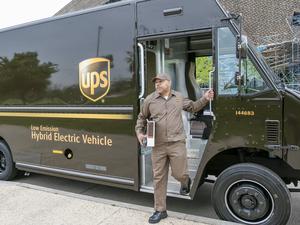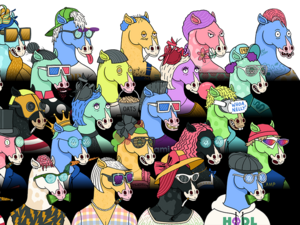
NFT. Non-fungible token. The term has been a leading topic of conversation in technology, finance and culture, and it even won the Collins Dictionary Word of the Year in 2021.
Simply put, NFTs are unique digital certificates registered on a virtual ledger that are used to record the ownership of an asset.
These assets can range from artwork, collectibles and memberships to music, videos and more. While the term is usually associated with clickbait headlines like Beeple sold an NFT for $69 million or A Bunch of Bored Ape Yacht Club NFTs Were Stolen (again), NFTs solve a real-world problem.
They make proving ownership and scarcity of a digital asset — with verifiable legitimacy — possible in our everyday lives.
Since NFTs first started making headlines a couple years ago, they have been seeping more and more into our everyday lives. With the NFT market-cap expected to surpass $80 billion by 2025, it’s a good time to start paying attention.
Brands are experimenting with NFTs and finding real utility
Brands are scrambling to jump into NFTs.
Despite market conditions, brands still recognize NFTs’ potential as innovative mediums for fostering community and brand loyalty. NFTs allow brands to get closer to the consumer while reducing friction.
Major brands like Adidas, Nike, Tiffany & Co., Starbucks, Pepsi, Paramount, Nickelodeon are exploring NFTs. And the list continues to grow.
A key to success is to enter the market in an authentic way. The NFT community is weary about giving time, attention, and money to brands that are only interested in extracting value, rather than creating it.
Budweiser won the hearts and minds of the NFT community with the purchase of an Ethereum Name Service domain (Beer.eth) en route to launching its Budverse Cans collection.
For the uninitiated, an ENS domain is used to point to a digital wallet, much in the way a domain name or URL points to a website.
Budweiser’s decision to complete this rite of passage was met with great enthusiasm.
Budweiser, or Beer.eth, then built a roadmap that continuously presents perks and benefits to those who own and hold a piece of the Budverse Cans collection. It was clear. Budweiser wasn’t just selling artwork; it was selling an innovative brand experience that crosses between the digital and physical world.
The collection, which was comprised of 1,936 unique artworks, went on to sell out in under an hour. The company made $4.5 million in revenue and cemented itself as the standard for entering the space.
NFTs are bridging online and offline experiences
This past June, I was fortunate to be able to attend the fourth-annual NFT.NYC, the largest NFT gathering in the world. More than 15,000 collectors, builders, artists and enthusiasts registered for this year’s conference, in addition to the thousands more that flooded the city for NFT-related satellite events.
The conference made one thing abundantly clear — NFT collectors now want their digital assets to have physical experiences or rewards tied to them.
The NFT.NYC Cooltopia experience by Cool Cats established a high standard for online-offline integration. Cooltopia is a digital game normally available only to NFT holders.
During the conference, the Cool Cats team brought the online experience to life. Cooltopia had it all — obstacle courses, treasure hunts, merch stores, “Milk Bars” and more. Cool Cats awarded its most loyal online fans while attracting thousands of new brand advocates from the offline world.
Cooltopia confirmed the interest people have in owning digital assets that are tied to physical experiences. The volume of attendees and earned media further validated the potency and power NFT communities have.
NFTs will begin impacting every facet of our lives
The rise of NFTs might be recent, but there is no sign they are going away.
The numbers don’t lie. Reddit, one of the world’s leading social media companies, has reported a 3,949% increase in NFT mentions on its platform since 2021 alone. In 2022, 9.3 million Americans owned at least one NFT, double the previous year and continuing to trend upward.
Like any disruptive technology, NFTs and the culture around them will go through the fires of market maturity, but the proof of concept is there. They are a secure and verifiable method for owning and leveraging digital assets. Their utility will transform business practices across every industry.
We’ve already seen compelling examples in ticketing, real estate, crowdfunding, voting, memberships, legal documents, gaming, music, certificates, medical records and more.
Businesses and consumers will increasingly be exposed to NFTs and their underlying technology. The sooner you understand how and why, the sooner you can harness their full potential.
— Nicholas Kampouris works on iconic brands as a content specialist at Louisville-based Doe-Anderson. By night, he's a core team member of Bushidos, a sold-out NFT collection.











